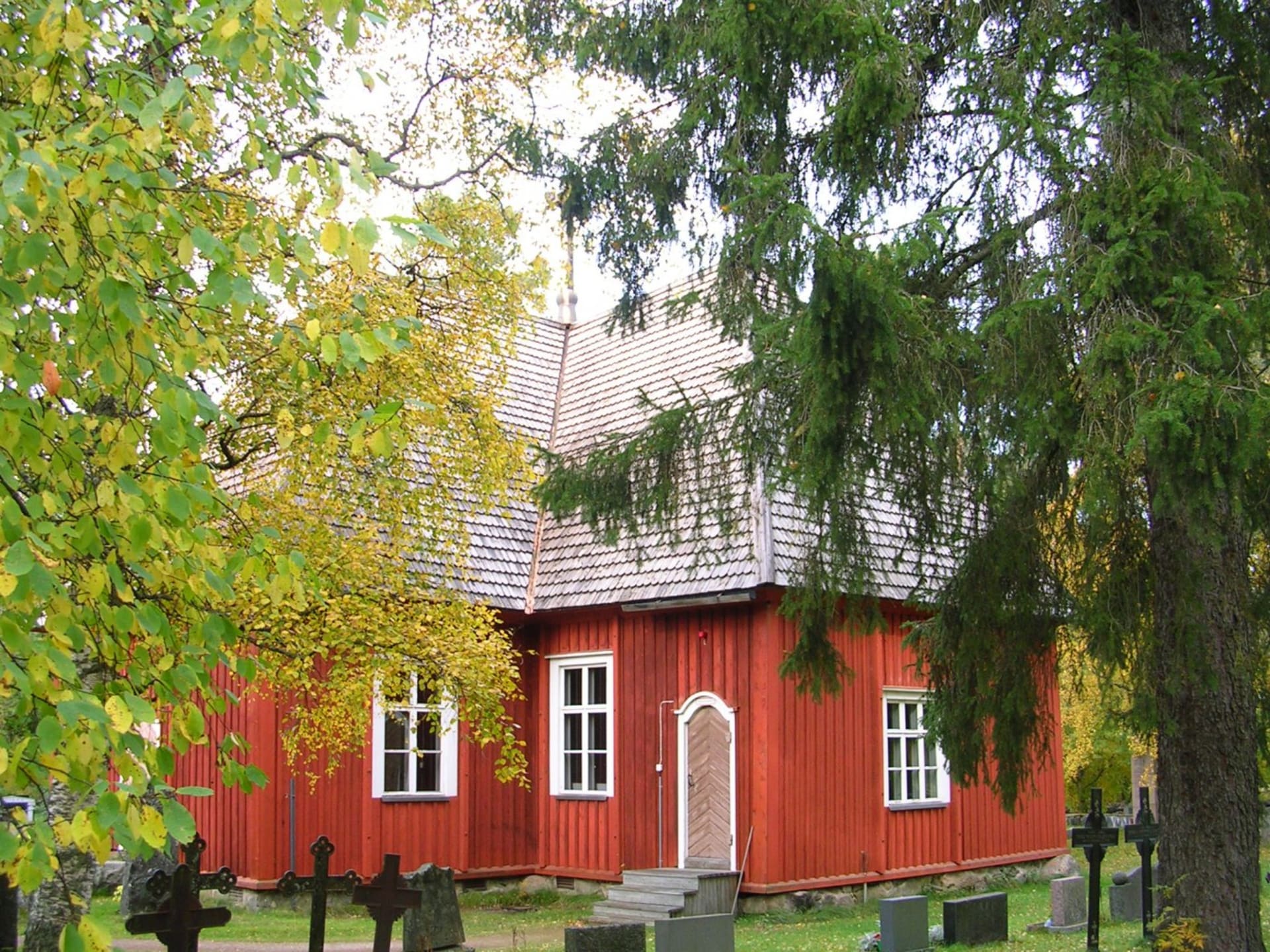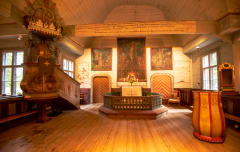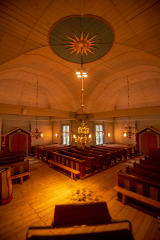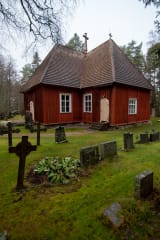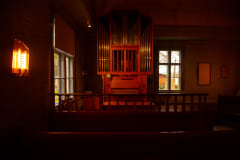Church of Revonlahti
Revonlahti Church was completed in 1775. The construction was initiated two years earlier, possibly under the leadership of Jaakko Suoperä. According to local lore, the owner of the Vaskuri estate served as a kind of supervising carpenter for the work efforts. He is also likely to have made the sun dial carved in stone next to the southern entrance.
The altar wall presents paintings, presumably last works of the church painter Mikael Toppelius.
The church was most likely built at the site of the former chapel, which was completed in 1691. Revonlahti Church is shaped like a cross with arms of equal length. The windows are rectangular and divide into six panes. The building is covered by a relatively steep hipped roof. In 1826, the centre of the church featured a pole eight ells in height, topped with a rooster, the Christian symbol of vigilance. The rooster was later replaced with a cross. The Revonlahti belfry was completed in 1782. In terms of its style, it is an authentic Ostrobothnian Renaissance belfry. It features two bells, purchased in 1782 and 1860.
Revonlahti is one of the villages in Siikajoki municipality. The municipal centre is in Ruukki while the other villages include Paavola, Siikajoenkylä, Karinkanta, Tauvo, Tuomioja, Saarikoski and Luohua.
Siikajoki has nearly 120 kilometres of riverside and 60 kilometres of sea coast by the Botnian Bay.
